
It has been approximately two years since our last newsletter, making this the first chance for me to share an update with our readers. On behalf of our team, thank you for taking the time to review this newsletter and the work of the Forest Practices Board.
I joined the Board in early 2023, at which time we started implementing our current Strategic Plan. This plan identifies our priorities as:
In June 2023, we published the report Forest and Fire Management in BC: Toward Landscape Resilience. In this report about mitigating catastrophic wildfire risk, we recommended that government develop and implement a vision and action plan for landscape resilience.
More recently, we reported on five years' worth of audit findings. This overview found that 86% of the activities audited by the Board were fully compliant with legislative requirements. This is a strong indication that licensees and professionals in BC are very good at abiding by the laws when carrying out their work.
As some have said, a reboot of the forest sector is underway. Policy updates, climate impacts, and Indigenous rights and title recognition are some of the key drivers of this change. It is important to prioritize maintaining healthy, resilient forests that benefit everyone as we adapt. Staying focused on this goal will help strengthen the sustainability and resilience of this cornerstone sector. This past year, we gave a fond farewell to our long-standing appointed board member, Bruce Larson, as he embarked on his well-deserved retirement. Before he departed, he left us with one last gift—a snapshot of what life as an appointed board member is like
Keith Atkinson
Chair
 Most forest professionals in BC know about the Forest Practices Board; however, most interactions are probably with staff members, not the appointed board. Since early in its history the Board has delegated all the investigative activities and report writing to the professional staff, but the reports, conclusions, commentary, and recommendations ultimately remain the responsibility of the appointed board.
Most forest professionals in BC know about the Forest Practices Board; however, most interactions are probably with staff members, not the appointed board. Since early in its history the Board has delegated all the investigative activities and report writing to the professional staff, but the reports, conclusions, commentary, and recommendations ultimately remain the responsibility of the appointed board.
The Board consists of 5–7 part-time members and a full-time Chair. I have just completed six years of service as a part-time member. For these six years, I served as Vice Chair, except for two stints as Acting Chair when that position was vacant. I would like to describe what it was like to be a part-time appointed Board member.
You might ask, “Who are these people?” The backgrounds of members are varied. Each has extensive experience in the general area of natural resource management but are not necessarily professional foresters. For example, I came from a career in academia and am an honourary member of the Forest Professionals of BC. These folks have worked in both the private sector and government and come from around the province. Each represents public interest as a whole; NOT a particular interest or geographic area.
Another good question would be, “If the staff does all the investigation and report writing, what do Board members do?” The Board has monthly meetings, usually all-day meetings that are remote. Several times a year the Board meets in person for a multiday meeting. These meetings sometimes include field trips where the Board has an opportunity to talk with local people in various parts of the province to hear their interests and concerns.
The monthly meetings have four purposes. One is to hear updates from the staff on the status of investigations and audits and any appeals to the Forest Appeals Commission that relate to Board interests. Secondly, there is a round table discussion of anything that Board members have heard or read that might be of interest to our work. Thirdly, we have presentations and discussions with outside experts on important issues. Recently these have included forest practices that affect biodiversity, changing conditions in fire ecology and wildfire management, progress of Forest Landscape Plans and Forest Operations Maps, and innovative silvicultural practices. We also have had discussions with several First Nation leaders from around the province. Fourth, we review procedures and practices of the Board itself. We review key performance indicators of all aspects of Board work, choose topics for new special investigations, and help the Chair set priorities for various aspects of procedures. We also recently completed a new strategic plan. We are not a “Carver format Board”; the Chair alone has responsibility for budgets and daily activities, not us.
Now, you might ask, “Why should tax money be spent on a small number of people keeping up to date with what is happening in the province?” The most important (and interesting) role of an appointed Board member is to serve on panels. Each report is reviewed by the directors and—when deemed professionally rigorous, complete and readable—it is passed to the Chair who can review and approve the report themselves or appoint one or more Board members to be a panel for this review. Board policy is that if the findings are deemed to be of significant public interest, controversial, or may include specific recommendations to one or more parties or the government, a panel will be struck.
A panel review includes questioning all assumptions and analyses. Common questions a panel poses are, “Did you consider…?” or, “Why did you decide this?” When the panel is satisfied that they fully understand the investigation and report they turn their attention to the conclusions, constantly asking if they are based only on the report. Each report must “stand on its own two feet.”
The panel may feel that the conclusions warrant recommendations for actions that should be taken. These recommendations have a deadline for response about whether an action has or will be taken. When the response is received, the panel reconvenes to review and comment on the response. The panel chair then officially closes the file.
Sometimes the panel feels that comments or observations that go beyond the investigation are warranted. In this case, they write a commentary. This is separate from the investigation but will be included in the report.
Now that I am no longer on the Board, everything I have said must be considered opinion, not Board policy. I enjoyed my tenure and feel that during this time we had a significant impact on the sustainability of forest practices in BC.
Bruce Larson
In 2024, we released four audit reports:
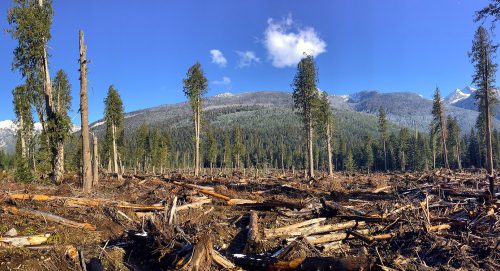
Tolko Industries Ltd. – Timber Licence T0816: Tolko complied with all requirements of the Forest and Range Practices Act and the Wildfire Act. The audit findings indicate that Tolko's forest-management system incorporates effective processes and procedures that fully comply with legal obligations and regulatory standards.
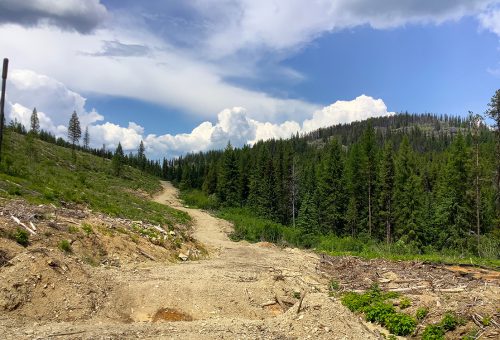
BCTS & Timber Sale Licence Holders – Boundary TSA Portion of the Kootenay Business Area: The audit found significant issues with road and bridge maintenance. BCTS did not inspect any high-risk or very high-risk roads, and inspected only a limited number of moderate-risk roads. Timber Sale Licence (TSL) holder Tolko Industries Ltd. did not repair broken guardrails on a bridge used by industrial traffic during the audit period. The TSL holders failed to meet the fire-hazard assessment timelines required by the wildfire regulations, which is a common audit finding and is an area requiring improvement.
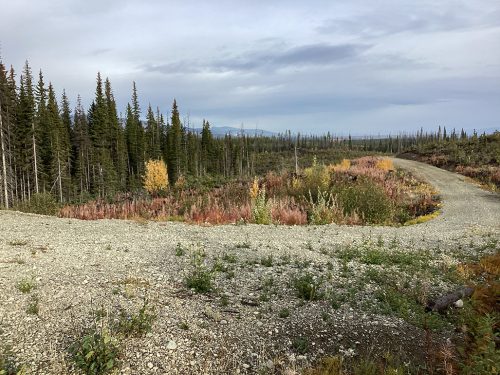
Nak’al Koh Timber Limited – Non-Replaceable Forest Licence A89836: Nak’al Koh generally complied with FRPA and the Wildfire Act, except for seed transfer, silviculture reporting, and fire hazard assessment. Of the 13 cutblocks examined, 5 did not conform to the chief forester’s seed transfer guidelines; 3 cutblocks’ planting activities were not reported on time; and required fire hazard assessments were not completed for 12 cutblocks. While conducting fire hazard assessments was identified as an area in need of improvement, there were no concerns regarding Nak’al Koh's practices for fire hazard abatement. Nak’al Koh successfully reduced fire hazards in all 11 cutblocks that were addressed during the audit period.
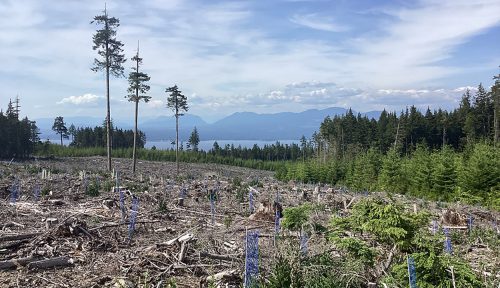
1175401 B.C. Ltd. – Forest Licences A77899 and A77900: 1175401 B.C. Ltd. generally complied with FRPA and Wildfire Act requirements; however, this audit found several instances of significant non-compliance. This audit discusses the Board’s views on licence transfers, the associated communication between the provincial government and new licensees regarding obligations and responsibilities, and how they relate to the compliance issues identified in this audit.
In 2024, we received 7 complaints and dealt with 48 concerns from members of the public. There are currently 11 ongoing complaint investigations. Six of these complaints involve range practices, while the remaining five are to do with topics relating to visual quality objectives, terrain stability, wildfire control, harvesting, soil disturbance, species at risk and old-growth management.
We have also published three investigation reports:
On July 7, 2023, we received a complaint from a passionate bird enthusiast who raised concerns about the legality of gates restricting access to parts of TFL 46. Under normal circumstances, the public is granted access to roads leading to public land for non-industrial purposes. However, FRPA allows for exceptions in cases where road usage may pose a threat to property, public health or safety.
Upon investigation, the Board found that the licensee had followed proper procedures in seeking consent to restrict access. The Ministry of Forest’s district manager had deemed the installation of gates necessary to safeguard property and public safety.
A representative from the Discovery Islands Forest Conservation Project lodged a complaint with the Board regarding the potential harvesting of the remaining old-growth forests on Quadra Island.
The investigation found that TimberWest Forest Corp. lacked an effective strategy to ensure adequate amounts of mature forest within TFL 47 were conserved to eventually become old and meet the Province's targets for old forests. The two other licensees investigated, Okisollo Resources Ltd. and Younger Brothers Holdings, are not obligated to adhere to provincial requirements for old forest conservation due to their woodlot holdings. However, both companies have voluntarily committed to refraining from harvesting old forests in their woodlot licence plans.
The Board recommends that TimberWest amend its forest stewardship plan to incorporate a strategy for the recruitment of old forest. This strategy should outline how the company plans to ensure the full target amount of old forest is achieved within the Quadra landscape unit.
In March 2021, the Board received a complaint about the scale of clear-cut harvesting in the Kettle River watershed exceeding acceptable levels, leading to changes in seasonal water flows and increasing the risk of floods.
The Board assessed 169 large cutblocks that were harvested in the Selkirk and Okanagan Shuswap Natural Resource Districts between 2016 and 2021. The findings revealed that licensees complied with legal requirements. However, investigators found 5 out of 7 licensees failed to conduct watershed assessments when planning their harvesting activities in at-risk watersheds over the 5-year period. Furthermore, 55 large cutblocks were harvested in at-risk watersheds with a focus on mimicking natural disturbance patterns to allow for the harvesting of green timber.
Since the investigation period ended, the Ministry of Forests and professional associations have developed initiatives that provide information and tools to address the cumulative effects of harvesting and other disturbances in the watershed.
The Board has approved two new special investigations:
In 2004-2005, the Board released reports regarding post-fire rehabilitation efforts, which investigated the rehabilitation of areas impacted by the 2003 fire season. The investigation focused on the plans that were prepared, implemented, and effective in controlling water and erosion. The Board concluded that the rehabilitation efforts were generally effective and recommended ways to improve future practices. These recommendations included revising rehabilitation plan submission timelines and conducting pre-season fire management planning with input from land managers.
This special investigation began in summer 2024 to assess compliance with legal requirements for post-wildfire rehabilitation by evaluating plans, assessments, and practices and examining their effectiveness. Board assessors have completed field evaluations of rehabilitation works from 19 wildfires in the Stuart-Nechako and Thompson Rivers Natural Resource Districts. Findings from this special investigation will be published in spring 2025.
In spring 2023, the Board launched a special investigation to assess whether activities regulated under the Forest and Range Practices Act (FRPA) and the Wildfire Act support or undermine wildfire risk reduction.
FRPA and the Wildfire Act have different objectives, are designed to achieve different outcomes than WRR, and are not always compatible. Past Board audits and investigations have shown that forestry practices can add or subtract from wildfire risk reduction efforts.
The Board is interested in how WRR efforts are integrated into forest and range planning and practices. The investigation examined hazard assessments, fuel management prescriptions, and other plans, evaluating compliance and effectiveness through field assessments of forestry activities. A total of 65 sites across 14 communities in the Sea to Sky, Cariboo-Chilcotin, and Peace Natural Resource Districts were reviewed. Findings from this special investigation will be published in spring 2025.
The Board did not initiate or join an appeal in 2024. However, we are currently still participating in two appeals:
Category 2 open burning: The Board joined an appeal involving a lessee and their contractor being found in contravention of the Wildfire Act for failing to comply with category 2 open burning requirements. The Board is likely to focus its participation in the appeal on the diligence required, to establish a defence of due diligence, of a person who hires another to conduct burning. The Board may also participate on the issue of apportioning fire control costs and damages among multiple persons.
The Board tracks the implementation of its recommendations and posts all responses to our recommendations with the relevant report on our website.
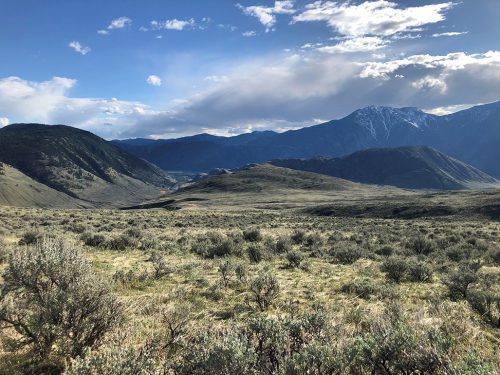
Livestock Grazing in the South Okanagan and White Lake Grasslands Protected Areas: In May and July 2024, the Province provided responses to the Board’s recommendations. The recommendations were: 1) Define ‘ecologically suitable species’ in FRPA to ensure consistent application for forest and range practices. Prepare and implement appropriate guidance for selecting ecologically suitable species; and 2) In collaboration with First Nations, prepare and implement a long-term, comprehensive management plan for the SOGPA that integrates livestock grazing and the protection of cultural and ecosystem values. The plan should include (i) a field-based assessment of forage availability and range condition across the protected area, and (ii) strategies that will be implemented to restore areas negatively impacted by livestock grazing and the construction of range developments. The applicable Range Act agreements and range use plans should be amended to be consistent with the content of the management plan.
The MOF indicated that ecologically suitable species will be defined in upcoming amendments to the Range Planning and Practices Regulation. Further, BC Parks will continue to work with the MOF to identify ecologically suitable species for revegetation in protected areas. MOF and other government agencies are also engaged with First Nations to develop a collaborative stewardship model that will include range stewardship and monitoring. BC Parks concurred and acknowledged that there is work to be done with MOF to realize a higher standard of range stewardship in protected areas. Read full response.
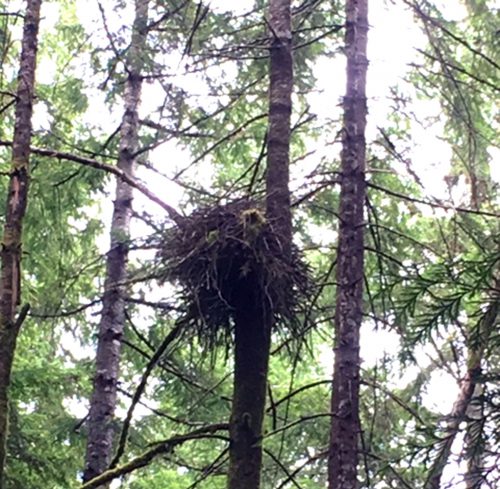 Management of Habitat for Species at Risk under the Forest and Range Practices Act: In July 2024, the Province provided a response to the Board’s recommendation made in the special investigation. The recommendations included updating the policy framework for managing habitat of species at risk; and providing a transparent process for how and when government makes decisions to balance timber supply and habitat protection. Some of the initiatives government highlighted in response to these recommendations included updating FRPA’s Categories for Species at Risk and Regionally Important Wildlife, as well as, a commitment to updating the Identified Wildlife Management Strategy to address habitat supply. Read full response.
Management of Habitat for Species at Risk under the Forest and Range Practices Act: In July 2024, the Province provided a response to the Board’s recommendation made in the special investigation. The recommendations included updating the policy framework for managing habitat of species at risk; and providing a transparent process for how and when government makes decisions to balance timber supply and habitat protection. Some of the initiatives government highlighted in response to these recommendations included updating FRPA’s Categories for Species at Risk and Regionally Important Wildlife, as well as, a commitment to updating the Identified Wildlife Management Strategy to address habitat supply. Read full response.
Since 2023, we have had staff members retire or transition to new roles outside of our organization, necessitating the need for new staff to assume these positions. Learn more about our team at https://www.bcfpb.ca/board/our-team/.
The Board welcomes the following new staff and board members:
 Briar Young joined the Board as our Executive Director in August 2024. He has over 24 years of experience in both the private and public sectors, with a significant portion of his career focused on managing complex natural resource regulatory regimes, Indigenous engagement and environmental programs.
Briar Young joined the Board as our Executive Director in August 2024. He has over 24 years of experience in both the private and public sectors, with a significant portion of his career focused on managing complex natural resource regulatory regimes, Indigenous engagement and environmental programs.
 Greg Jorgenson joined the Board in December 2023 as a Manager of Audits and Investigations in the audit program. He is Registered Professional Forester and an accredited silviculture surveyor who spent seven years of his career focusing on provincial silviculture improvements within the Office of the Chief Forester in the Ministry of Forests.
Greg Jorgenson joined the Board in December 2023 as a Manager of Audits and Investigations in the audit program. He is Registered Professional Forester and an accredited silviculture surveyor who spent seven years of his career focusing on provincial silviculture improvements within the Office of the Chief Forester in the Ministry of Forests.
 Frank Tiramani joined the Board in January 2024 as a Manager of Audits and Investigations. In 2012, he started working in forestry in BC at the Alex Fraser Research Forest. Frank became a Registered Professional Forester in 2017.
Frank Tiramani joined the Board in January 2024 as a Manager of Audits and Investigations. In 2012, he started working in forestry in BC at the Alex Fraser Research Forest. Frank became a Registered Professional Forester in 2017.
 Tanner Senko joined the Board in August 2024 as the Communications Manager, assisting the Board with media relations, stakeholder engagement, and report editing and publishing.
Tanner Senko joined the Board in August 2024 as the Communications Manager, assisting the Board with media relations, stakeholder engagement, and report editing and publishing.
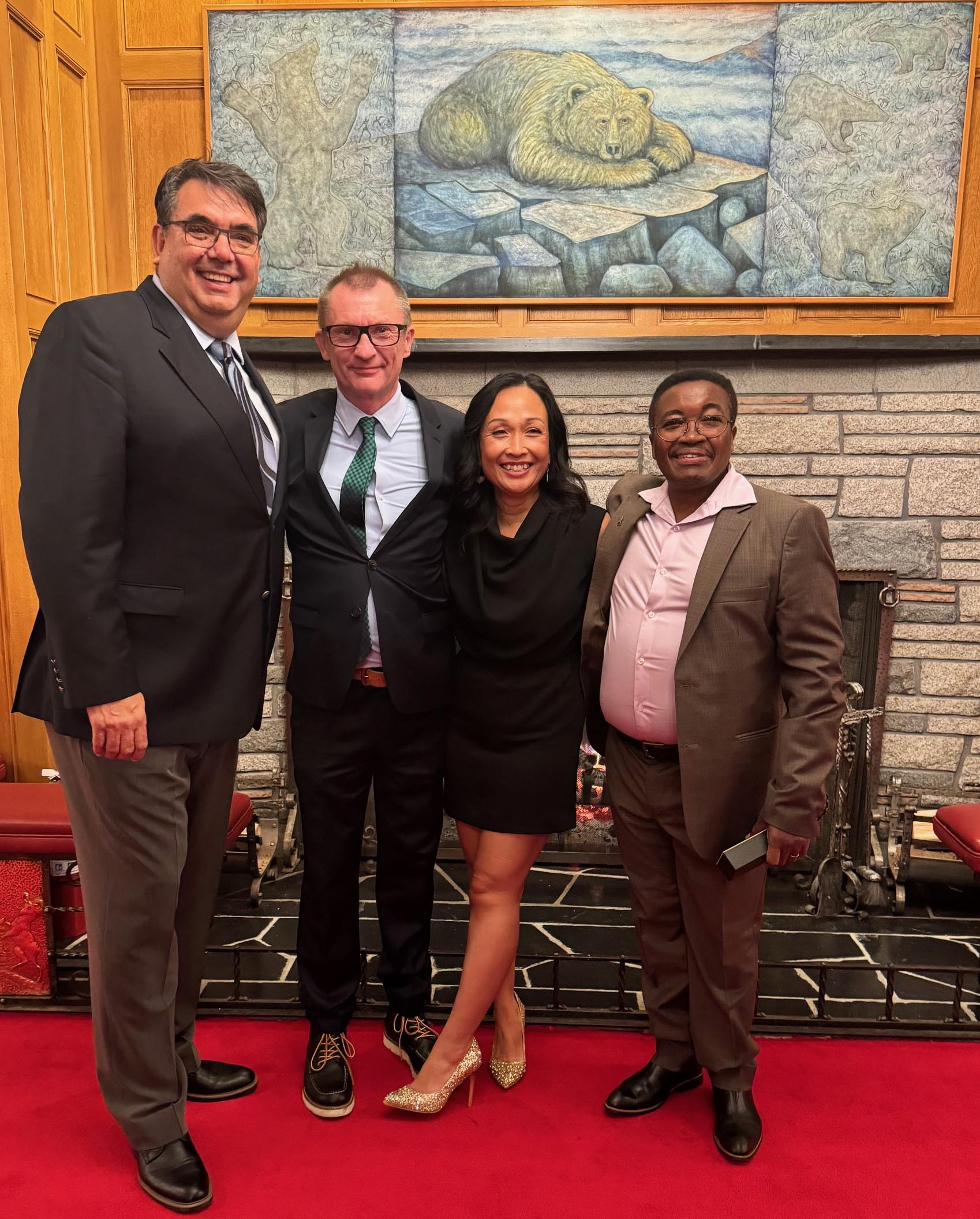
Three of our staff, Kairry Nguyen, Francis Njenga, and Tim Slater received their 25-year Long Service Award. Congratulations and thank you for your dedication, hard work, and contributions to the BC public service.
In August 2024, we wished a happy retirement to our Executive Director, Geoff Recknell. Additionally, we honored the memory of Cindy Stern, celebrating her impactful life and contributions to our organization and the management of BC forests.
